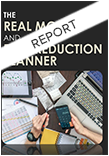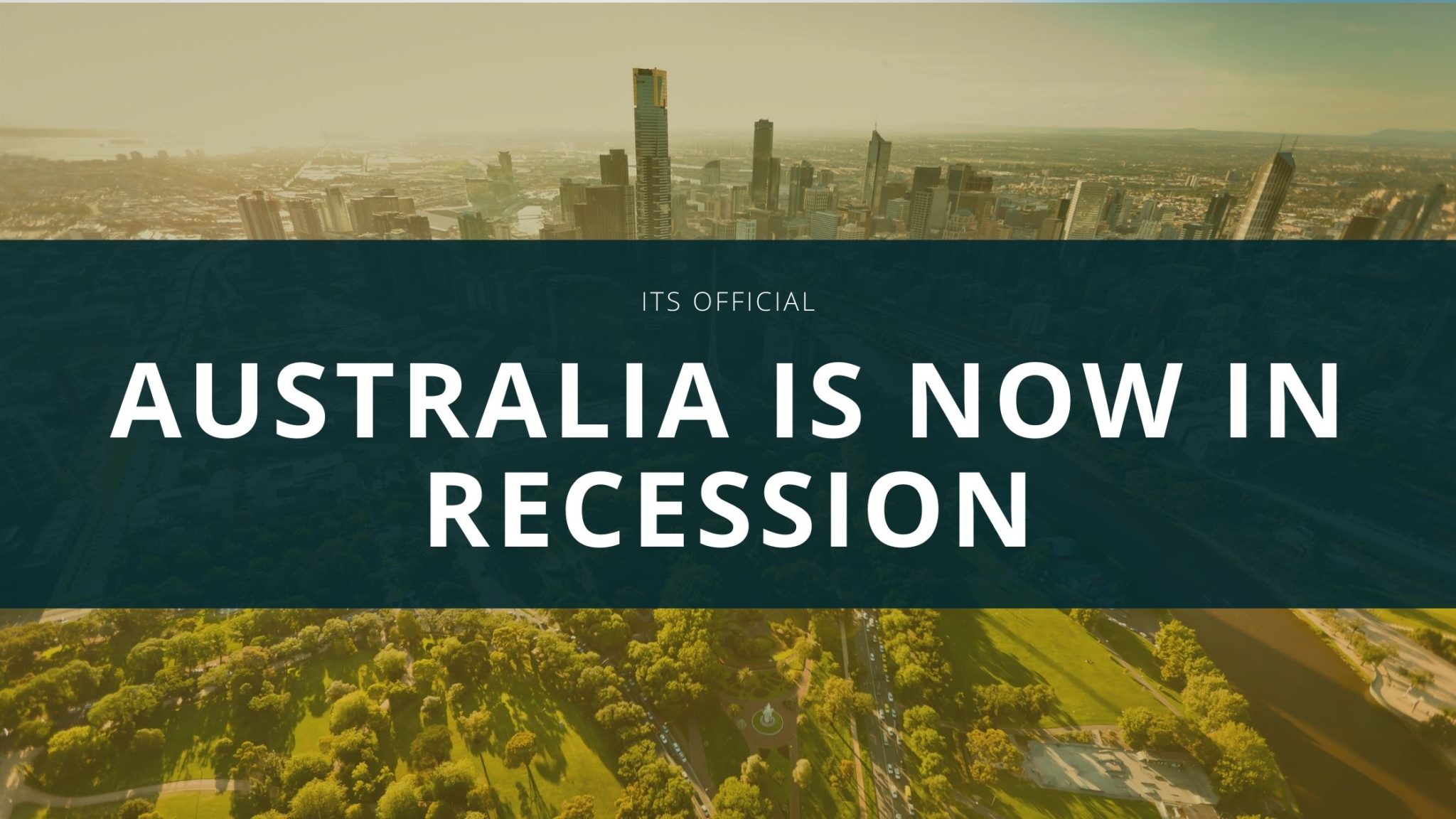Real Wealth Australia
Boom or doom – Where is the property market headed?
Is it just me, or have you noticed quite a bit of positive sentiment about the property market recently? Confidence is improving and property markets are growing just slightly, so we’re told. But while we’re hearing some spruikers optimistically talk the market up – after all, that’s their job – I think it’s time to look at the fundamentals of the Australian market, because forewarned is forearmed.
I’ve been of the view that Australia is headed for economic instability for some time… And I don’t want you to get caught out when it happens. It may not be a recession in ‘official’ terms: by definition, a recession is two consecutive quarters of negative economic growth.
But the impacts of years of government instability and huge federal spending programs (from both sides of the political spectrum) means we’re seeing big government debt – the results of which could be just as devastating for our economy as a recorded recession.
Here’s what I’m seeing. At the moment, our federal government has outstanding debts of around $271 billion. At that level, it costs Australian taxpayers roughly $12.8 billion in annual payments, just to repay the interest.
These are whopping big debts and repayments, but let’s not forget that our national earnings are massive as well – somewhere in the vicinity of $900 billion.
It’s a huge amount of income in anyone’s books, and it needs to be, when you consider the things that government spends its money on: hospitals, schools, healthcare, infrastructure, bridges and roads, border security, defence forces, foreign aid, pensions, unemployment payments and other social welfare programs… the list goes on.
But this is the problem as I see it.
Our federal government is raking in $900 billion per year, of which they allocate just under $13 billion for debt repayments. That leaves $887 billion… and this year, we’re in deficit of over $19 billion.
Which means, the government is spending all of its income and living well beyond its means. Somehow, even while receiving an income of close to $1 trillion, it has come up short $19 billion. And I would effectively call that a recession. It’s certainly not a positive sign of moving forward financially!
I know I’m throwing around big numbers here, which makes it easy to switch off and miss the bigger picture, so I’m going to drop off a few zeroes and explain the situation in simple terms.
Let’s say you’re the government. Instead of a $271 billion debt, you have a $271,000 debt on your house. Your annual mortgage interest bill is $12,800 (down from $12.8 billion).
It doesn’t sound so bad, does it? Now, I’m going to sweeten the deal and let you know your income: it’s an impressive $900,000; equal to the Federal Government’s national income of $900 billion.
Is there a single person reading this who wouldn’t want to be in this situation?! Financially, you’re set!
Right?
Well, let’s look at your bills. Of course there’s food and groceries, fuel, school fees and childcare. Plus medical bills, health insurance, animal care, water, gas, electricity, council rates and internet access. You need clothes, furniture, home insurance, not to mention car payments, rego, insurance and services. And you might have a gym membership, pay TV, mobile phone plan, charity donations and hobbies to pay for…
You earn $900,000. Your debt repayments are only $12,800, so you have another $887,000 to play with.
You should be sitting pretty.
But when you crunch the numbers and work out your bottom line, you realise that after you’ve paid all of your bills, you still come up $19,000 short.
How is this possible?
With this massive income and a relatively small mortgage, how could it be that your annual expenses gobble through all of your money, to the point where you need to find another $19,000?
Is this good money management?
This is the very real situation that our government is in because after they’ve paid all their bills, they’re still $19.4 billion short.
And it’s a situation that many everyday Australians find themselves in, too. If your household is running at a deficit, and at the end of the day your expenses outweigh your income, then you are walking a very precarious line.
In simple terms, you’re failing to take responsibility for your financial situation, as you are effectively one accident, one job loss, one illness, or one pregnancy away from living in your own personal recession.
What is most interesting to me is that many Australians suffer this type of personal recession, even in times when our national economy is doing okay. Yes, governments do impact our hip pocket, however you can prepare yourself financially to lessen or elevate the impact of any economic changes.
Right now, the only way to protect yourself against this is to take responsibility for managing your money by pulling back on your expenses and committing to living within your means. This means you need to…
Start saving.
Stop borrowing.
Avoid living on credit.
Pay your bills on time.
The simple fact is this: if you’re only making the interest payments on your credit card each month and you’re not paying off the principal debt, you’re living being on your means. Most people manage their credit card debt this way and I have to say, it’s not really ‘money management’ at all – it’s debt avoidance.
If this sounds like you, the situation that you are living in is highly risky. When you spend more than you earn, the results can be devastating and it’s the same whether you’re dealing with a hundred billion dollar economy, or a $100,000 household budget.
In terms of our national budget, economists are saying that we’re better off than Europe and we’re streets ahead of Japan – where roughly 80% of federal income services just the interest payments on their debt! – because Australia only boasts a small level of debt compared to our income.
But to that I’d like to ask: if your next-door neighbour is in massive debt, does that make it okay that you’re managing your own budget badly?
If the guy down the street is struggling to pay his bills, meet his mortgage payments and manage his $75,000 credit card debt, should you feel better about the fact that you’re only $19,000 in the red?
Of course not! One has nothing to do with the other. The only person’s finances you need to worry about are your own – and there’s never been a better time to get focused about your goals and plans for the future.
Why? Because this is the time to start building up your cash reserves. It’s a sad but true fact, but it’s during economic uncertainty that the rich get richer and the poor get poorer.
So, where to from here?
When it comes to our national economy, unfortunately I do see a dumpy road ahead if things don’t change. I know, I know – this is not the kind of news you want to hear.
But we have massive government spending programs, instability within the ranks, so-called big ‘nation building’ schemes that the productive sector in the economy has to sponsor – not to mention the boondoggles that will be thrown out over this election.
If we don’t clean things up, there will be continued job losses and slumps in manufacturing, just like we recently saw with Ford, where 1,200 staff were made redundant.
And while a majority government may stabilise things, the reality is that regardless of what happens at the federal election in September, it could have an impact on property… Which represents the ideal time to hunt for bargains.
Just as Warren Buffet said he would buy up big during the GFC in the US – he said he would’ve bought 200 houses if it were feasible! – during an economic downturn in Australia, there could be bargains aplenty.
Because despite the fact that the cash rate is at its lowest rate on record at 2.75%, bank economists are still predicting further cuts. It doesn’t exactly paint a picture of confidence in the growth of our economy.
All of which means… This is the time to get your ducks in a row. I urge to you take the opportunity now to set yourself up, so that you don’t have your own personal recession – regardless of what is happening nationally or globally.
Just as importantly, I want you to be in a position to take action, if and when the right investment opportunities present themselves.
Many people made their fortune during the GFC and many more will profit off of negative economic circumstances in the future. You could be one of them, provided you’re ready to act and have a good financial position to work with. That’s the time to take action.
So, my advice? Start getting ready. Really analyse your budget with a fine-toothed comb and work out where you can trim your spending and boost your savings. Become a good money manager.
If the property spruikers are proven right and we do see an upturn, then all the better for us as property investors. But either way, if you’re smart about managing your money, you can profit – even if there’s blood on the streets.
I believe that economic conditions are primed for investors to enjoy some real opportunities and I want you to be prepared to experience your own personal windfall. The times they are a-changing so heed the warning and make the next 12 months your best time ever in the property market.
It’s time to go shopping for real estate! 😉
Until next time,
Happy investing!
Helen Collier-Kogtevs
Real Wealth Australia
Share this post
Become a successful Property Investor















